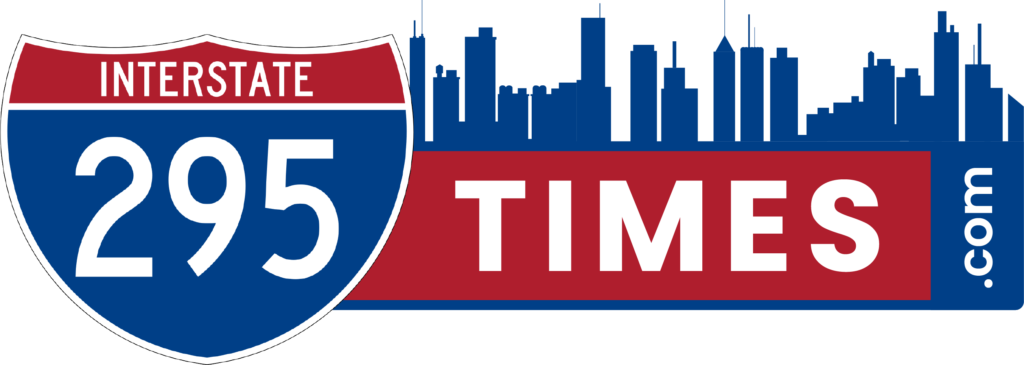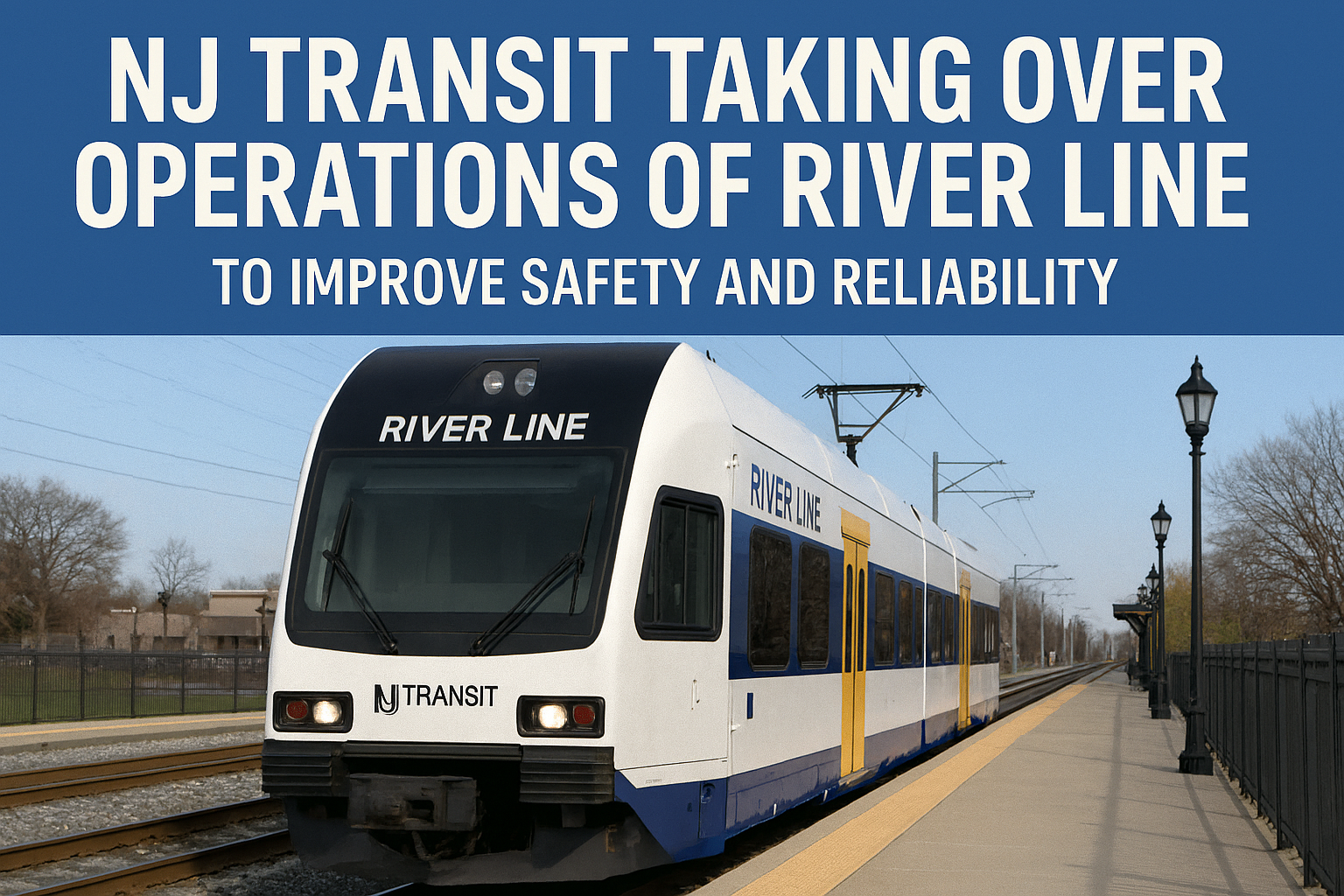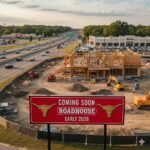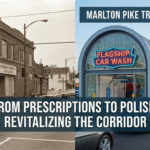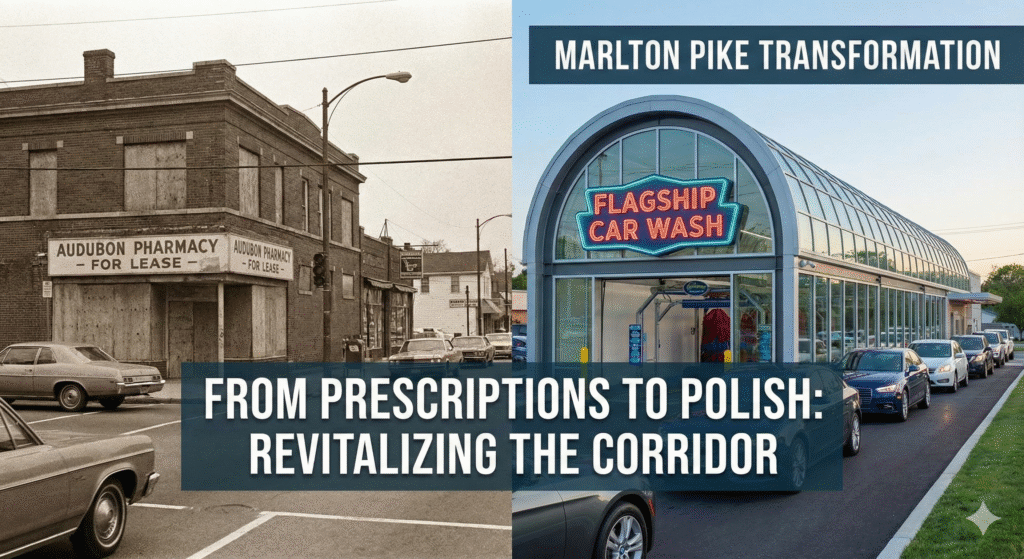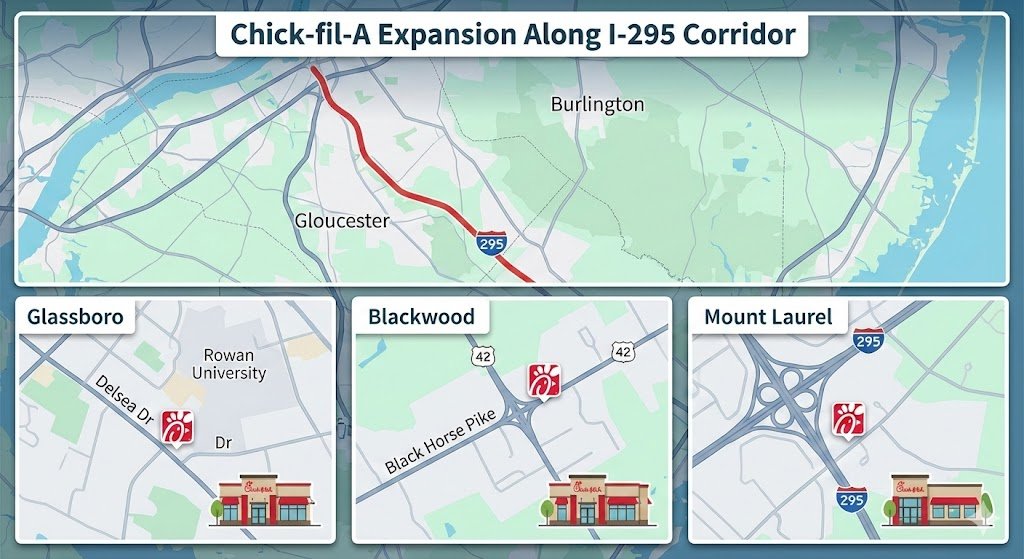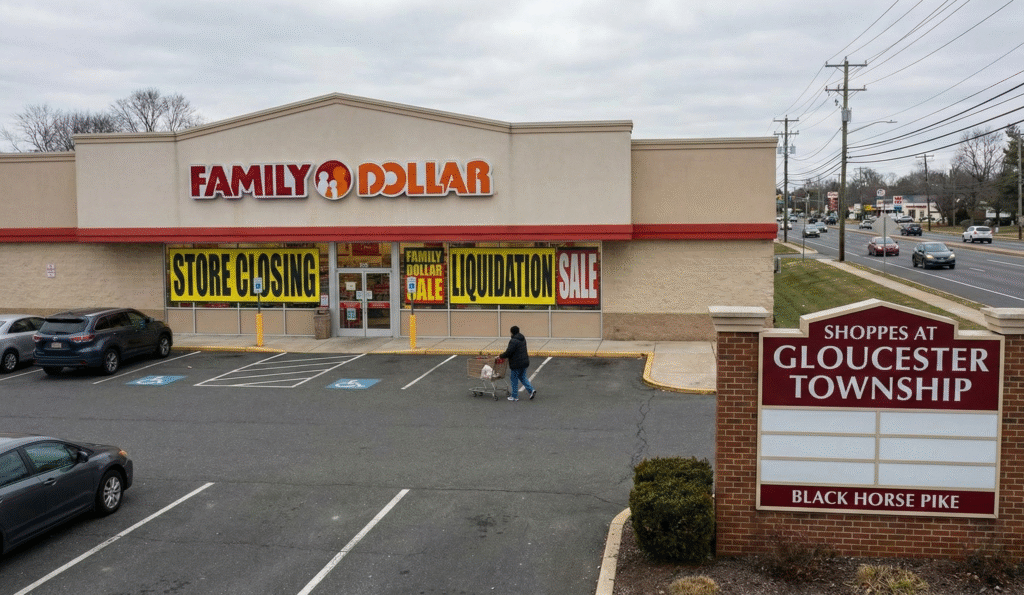In a sweeping move to overhaul one of South Jersey’s most vital transit corridors, NJ Transit has officially begun taking over operations of the River LINE light rail system, ending a two-decade partnership with private contractor Bombardier Transportation. The transition, which began in early September, is expected to be fully completed by late 2025, marking a new era for the 34-mile route that connects Camden to Trenton and serves communities along Interstate 295.
A System in Need of Reform
The River LINE, which launched in 2004, was envisioned as a clean, efficient, and affordable transit option for residents of Camden, Burlington, and Mercer counties. But over the years, the system has struggled with equipment failures, fare evasion, inconsistent service, and safety concerns. In 2024 alone, NJ Transit enforcement agents issued over 13,000 fare evasion summonses, highlighting a growing problem with accountability and oversight.
NJ Transit Executive Director Kevin Corbett said the decision to bring operations in-house was driven by a need for greater control, transparency, and responsiveness.
“We’re committed to making the River LINE a safe, reliable, and modern transit option for the communities it serves,” Corbett said. “This transition allows us to directly manage operations and invest in improvements that matter to riders.”
What’s Changing for Riders
As NJ Transit assumes control, riders can expect a series of visible and behind-the-scenes changes:
- Staffing and Uniforms: NJ Transit personnel will gradually replace Bombardier staff, with new uniforms and training focused on customer service and safety.
- Station Upgrades: Improvements to lighting, signage, and cleanliness are already underway at key stations like Riverside, Bordentown, and Pennsauken.
- Fleet Modernization: Plans are in motion to upgrade the aging fleet with more energy-efficient and accessible vehicles.
- Real-Time Tracking: NJ Transit will expand its mobile app capabilities to include real-time train tracking and mobile ticketing for River LINE riders.
Impact on I-295 Corridor Towns
The River LINE runs parallel to I-295 and intersects with several key exits, making it a critical connector for towns like Palmyra (Exit 26), Riverside (Exit 45), Delanco (Exit 43), and Bordentown (Exit 57). For these communities, improved transit service could mean:
- Reduced traffic congestion on I-295 during peak hours.
- Increased foot traffic near stations, benefiting local businesses.
- Expanded access to jobs and education in Camden, Trenton, and Philadelphia.
Local leaders have expressed cautious optimism about the transition. Mayor Michelle Arnold of Riverside said she hopes the changes will “bring renewed energy and investment to our downtown.”
Safety and Community Engagement
Safety remains a top priority. NJ Transit has pledged to increase police presence on trains and at stations, and to work with local municipalities to address concerns about loitering, vandalism, and fare evasion.
The agency is also launching a community engagement initiative, inviting residents to participate in feedback sessions and station beautification projects.
Looking Ahead
The full transition will unfold over the next 12–18 months, with NJ Transit gradually assuming control of operations, maintenance, and customer service. By the end of 2025, the River LINE will be fully operated by NJ Transit, with a new vision for service quality and regional connectivity.
For the thousands of daily riders who rely on the River LINE to navigate life along the I-295 corridor, the changes signal a long-awaited commitment to transit equity, safety, and modernization.
